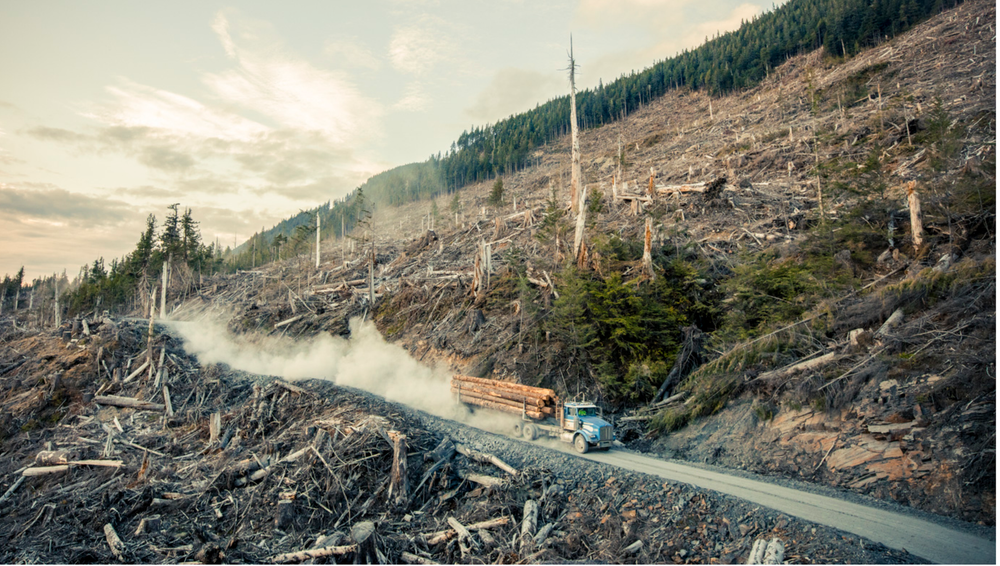The Sell-Off Proposal Was Just the Opening Bid
Will the mainstream media continue to give public-lands issues sustained coverage? There’s scant evidence to believe it will.
For a brief period last June, something truly extraordinary happened: a public-lands issue broke through to the national conversation and earned sustained attention from the mainstream media. When Utah senator Mike Lee (R) made a bold proposal to sell off millions of acres of America's public lands, he single-handedly (because, let's be honest, who can remember another voice out there championing this idea?) triggered an immediate and vocal pushback from millions of conservationists and outdoor-recreation enthusiasts. It was a bipartisan coalition too large to be ignored. This sell-off proposal made front-page news in The New York Times and was a prime-time topic on cable news shows. It even earned a prominent segment on the Joe Rogan Experience podcast.
"It's not theirs to sell," said Rogan. "It's an amazing thing that we have . . . and I don't think people in America even understand how unique it is."
On June 28, Senator Lee pulled his proposal. His reversal was the result of many factors. There were widespread and well-attended public protests. Countless call-or-write-your-congressperson drives that lit up phone lines and sent a tsunami of emails crashing into congressional inboxes. Tireless lobbying efforts from conservation groups behind the scenes. And passionate pushback from the newly formed, bipartisan public-lands caucus. But America runs on an attention economy, so the fact that mainstream outlets with national audiences were suddenly covering the topic played a significant role in forcing Lee's hand.
Still, as longtime Sierra Club leader David Brower once said (borrowing a line from Martin Luther King Jr.): in the environmental movement, "all victories are temporary, and all defeats are permanent." And in fact, Senator Lee, unwilling to admit defeat, vowed to bring the issue up again soon.
When that happens, will mainstream media outlets continue to give this issue sustained coverage? There's scant evidence to believe it will. Currently, there are a half dozen other major policy changes being proposed by the Trump administration—or already in motion via executive orders— that could arguably have an even larger negative impact on our public lands than the proposed sell-offs. And none of them are getting a steady drumbeat of attention.
Take the "roadless rule" as an example. About a week before Lee withdrew his land-sales proposal, New York Times reporter Lisa Friedman wrote a detailed piece on how the Department of Agriculture planned to rescind the Clinton-era policy that banned new Forest Service road development, which has protected around one-third of our national forestlands. The roadless rule kept critical regions, including more than 16 million of acres in Alaska's Tongass National Forest, from being logged. Since that June announcement, however, neither the Times nor any other large-scale mainstream outlet have followed up with additional coverage. There have been no other moments of outrage on Rogan, either. Continued coverage has been similarly dismal on a slew of concerning environmental fronts, such as the reopening of the Arctic National Wildlife Refuge to oil and gas development, and crippling cuts to the Department of the Interior's budgets and personnel.
This is why we started RE:PUBLIC. A half dozen outlets are doing great journalism in the public-lands arena. But no one can convince us that the present number of reporters acting as watchdogs over public-lands policy is sufficient. If we want conservation and recreation access to be on equal footing with extractive industries when policy is made, these issues need more attention. We hope you agree and will lend your support.
The Good, the Bad, and the Ugly
Every Friday, our team shares critical stories about public lands from around the internet. This list could be exhaustive and exhausting, but our intent is to inform, not overwhelm. Instead, we choose three to five important stories you should be aware of—including at least one piece of good news.
Good: U.S. Appeals Court Puts the Brakes on Contested Land Transfer for Arizona Copper Mine: "The fight over Oak Flat has spanned two decades, with the latest legal wrangling centered on a required environmental review that was released by the U.S. Forest Service earlier this summer and an appraisal of the land to be mined by Resolution Copper about 60 miles (96 kilometers) east of Phoenix."
(More) Good: Wyoming Lawmakers Advance Bill Decriminalizing Corner Crossing: The close vote reflects uncertainty about whether the U.S. Supreme Court might consider a lower-court ruling that corner crossing is not trespassing and what effect that might have on a new Wyoming law. Corner crossing is the act of stepping from one piece of public land to another where they meet with two pieces of private property. Corner crossers do not set foot on private land, but they pass through the airspace above it.
Bad: Trump’s Interior Department Is Turning Environmentalists’ Legal Playbook Against Them: Laws meant to protect and safeguard wildlife and public lands from mining, drilling, and habitat degradation—such as the Federal Land Policy and Management Act’s prohibition against “unnecessary or undue degradation”—are instead being wielded as a cudgel against wind and solar. “They are effectively trying to co-opt arguments that we have used for years to push back on fossil fuels,” said Erik Schlenker-Goodrich, the executive director at the Western Environmental Law Center, a public interest firm.“But I think it should go without saying that they are abusing those laws.”
Ugly: Hageman Still Favors Selling Federal Land: At [Wyoming Representative Harriet] Hageman’s Converse County town hall event Monday, a question from the audience inspired the second term representative to discuss her commitment to sell public land in an attempt to increase property available to municipalities to relieve housing and infrastructure concerns, as well as attempting to cover the cost of tax relief to the nation’s top earners. “I think that we have to talk about our federal lands,” Hageman said during the question and answer period at the end of the meeting. “When you’re talking about the western part of the state, or Utah or Nevada, I think that there has to be that discussion among the communities and BLM as to how best to use those lands.”




